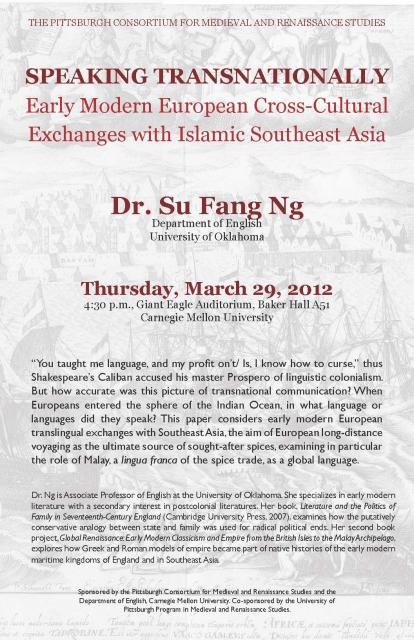
"You taught me language, and my profit on't/ Is, I know how to curse," thus Shakespeare's Caliban accused his master Prospero of linguistic colonialism. But how accurate was this picture of transnational communication? When Europeans entered the sphere of the Indian Ocean, in what language or languages did they speak? This paper considers early modern European translingual exchanges with Southeast Asia, the aim of European long-distance voyaging as the ultimate source of sought-after spices, examining in particular the role of Malay, a lingua franca of the spice trade, as a global language.
BIOGRAPHY:
Dr. Ng is Associate Professor of English at the University of Oklahoma.
She specializes in early modern literature with a secondary interest in postcolonial literatures. Her book, _Literature and the Politics of Family in Seventeenth-Century England_ (Cambridge University Press, 2007), examines how the putatively conservative analogy between state and family was used for radical political ends. Her second book project, "Global Renaissance: Early Modern Classicism and Empire from the British Isles to the Malay Archipelago," explores how Greek and Roman models of empire became part of native histories of the early modern maritime kingdoms of England and in Southeast Asia.

